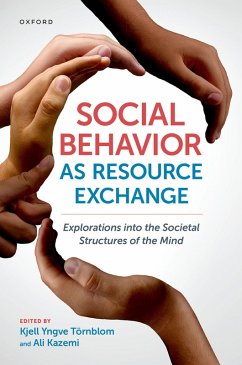
The Oxford Handbook of Self-Determination Theory (eBook, ePUB)
Versandkostenfrei!
Sofort per Download lieferbar
124,95 €
inkl. MwSt.
Weitere Ausgaben:

PAYBACK Punkte
62 °P sammeln!
Self-Determination Theory (SDT) is a broad theory of psychological growth and wellness that has revolutionized how we think about human motivation. SDT has been the basis for new and more effective practices in parenting, education, business, sport, healthcare, and other areas of life fostering higher-quality motivation, engagement, connection, and wellness. Drawing on over four decades of evidence-based research and application, this handbook delivers a truly integrative volume with 57 chapters by the top researchers and experts within the field of SDT. Edited by an SDT cofounder, this handbo...
Self-Determination Theory (SDT) is a broad theory of psychological growth and wellness that has revolutionized how we think about human motivation. SDT has been the basis for new and more effective practices in parenting, education, business, sport, healthcare, and other areas of life fostering higher-quality motivation, engagement, connection, and wellness. Drawing on over four decades of evidence-based research and application, this handbook delivers a truly integrative volume with 57 chapters by the top researchers and experts within the field of SDT. Edited by an SDT cofounder, this handbook traces the theory's historical and scientific foundations and synthesizes the latest research and insights on human motivation, covering topics from the social and biological underpinnings of motivation and wellness to practical applications in all aspects of life. The Oxford Handbook of Self-Determination Theory is an invaluable resource for researchers, practitioners, and students interested in practical research and guidance on the study of human nature.
Dieser Download kann aus rechtlichen Gründen nur mit Rechnungsadresse in A, B, BG, CY, CZ, D, DK, EW, E, FIN, F, GR, HR, H, IRL, I, LT, L, LR, M, NL, PL, P, R, S, SLO, SK ausgeliefert werden.













